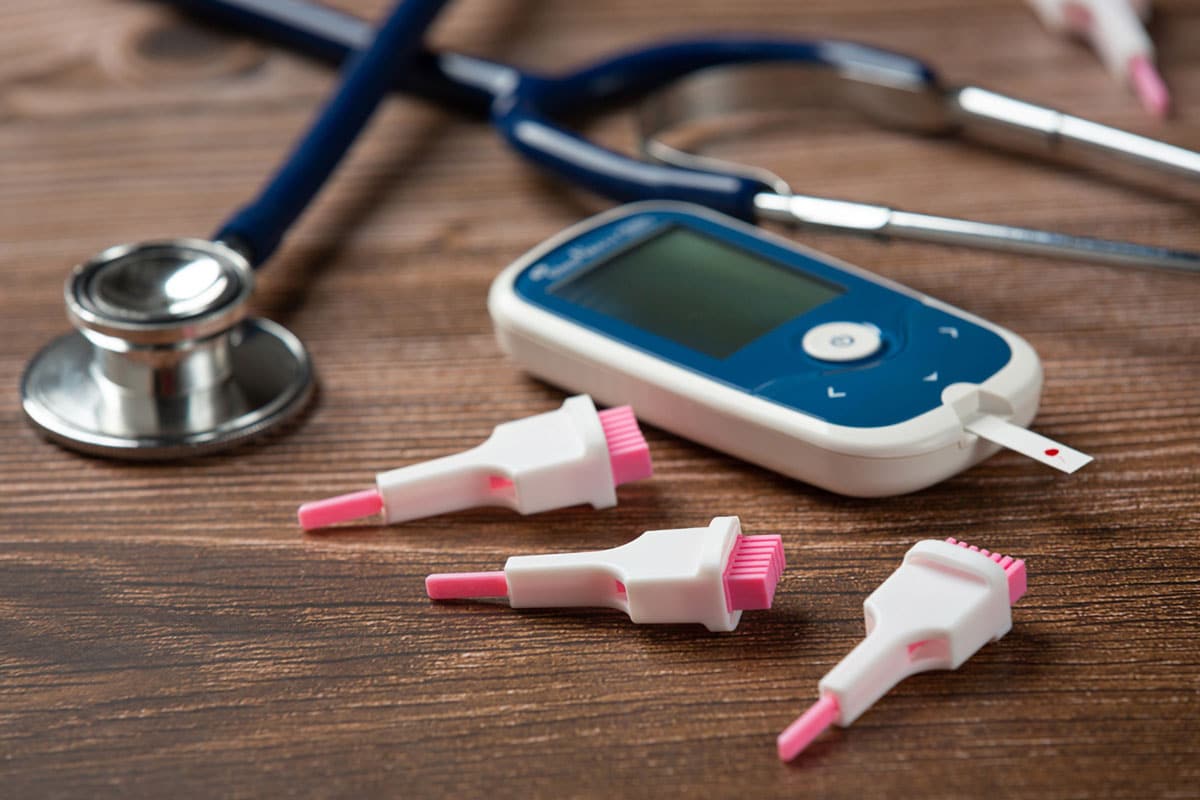
Diabetes is a family of diseases that all have one thing in common: a malfunctioning pancreas. While type 1 and type 2 diabetes have some similarities, the causes, preventability and management of the disease differ widely. Here are some useful explanations.
Symptoms of type 1 and type 2 diabetes
Contrary to popular belief, the two types of diabetes do not occur at the same time in your life.
Type 1 diabetes
Type 1 diabetes is known to affect mainly children: the first symptoms, such as severe thirst, sudden weight loss and very frequent and heavy urination, occur in children within a few weeks. These symptoms will worsen over time if left untreated. A child with type 1 diabetes may show severe loss of appetite, frequent vomiting, and visual disturbances.
Type 2 diabetes
Adults, on the other hand, are more affected by type 2 diabetes: 80% of type 2 diabetics were diagnosed after the age of 40, according to the French Federation of Diabetics. Symptoms often go unnoticed, which is why diagnosis is so late. For example, an adult with type 2 diabetes may experience symptoms such as the need to urinate much more frequently than usual, as well as vision problems. In type 2 diabetes, the sufferer may also experience genital itching, as well as difficulties in healing. Wound infections are also very common.
The cause of the different types of diabetes
While diabetes is always caused by pancreatic dysfunction, it is expressed and managed differently in type 1 and type 2 diabetes.
Causes of type 1 diabetes
In type 1 diabetes, glucose is no longer absorbed by the body, so the level of glucose in the patient’s blood increases. This is due to the fact that the beta cells of the pancreas gradually disappear, causing a lack of insulin in the body. Type 1 diabetics then need insulin injections to compensate for this deficiency, and are therefore called “insulin dependent”.
Causes of type 2 diabetes
Type 2 diabetics also lack insulin: there are two different reasons for this. In the case of insulin resistance, the cellular and tissue response to insulin is diminished: this condition, when combined with the bodies’ diminished capacity to secrete insulin, leads to the development of type 2 diabetes. Insulinopenia, on the other hand, is the consequence of an abnormality in the secretion of insulin by the pancreas, leading to exhaustion of this organ, which is unable to produce insulin in insufficient quantities.
Are both forms of diabetes hereditary?
Heredity plays an important role in the transmission of type 1 and type 2 diabetes, according to the French Federation of Diabetics (FFD).
Heredity of type 1 diabetes
In the case of type 1 diabetes, genetics plays a role in the transmission of the condition according to the FFD, although the risk of parent-to-child transmission is much lower. For example, a child has an average 6% chance of developing type 1 diabetes if either parent is a carrier of the condition. If both parents have type 1 diabetes, then there is a 30% chance of insulin dependence developing in the child.
Heredity of type 2 diabetes
If two parents have type 2 diabetes, then their children have a 70% chance of having it too. Note that this probability drops to 40% if only one parent has diabetes.
Factors favouring the development of type 1 and type 2 diabetes
According to the FFD, the following are the external causes that can lead to the development of type 1 and type 2 diabetes.
Type 1 diabetes
In the case of type 1 diabetes, the child is more likely to develop insulin dependence if his or her diet is not sufficiently varied, and if the child is not breastfed in the first few months of life.
Type 2 diabetes
Since type 2 diabetes develops mainly in adulthood, a healthy lifestyle is particularly important to prevent the onset of the disease. Factors such as being overweight or obesity, lack of physical activity and cholesterol are directly linked to the development of type 2 diabetes in adults.
Our latest publications
Want to learn more about topics related to blood sugar management?
Here are our most recent blog posts!



